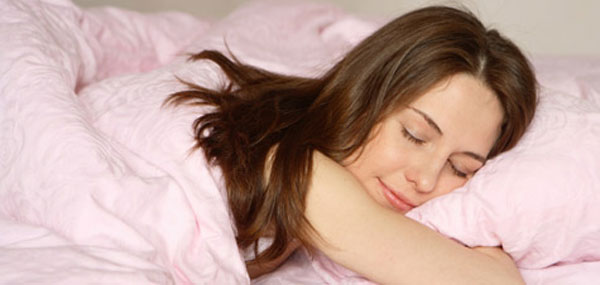Could a lack of sleep be sabotaging your loss?
Attention night owls: Research has found those who stay up late (and sleep less) may be more likely to gain.

IT’S 11 P.M., AND IT’S POSSIBLY the first time you’ve had to yourself all day. You can tune into late-night TV, check email or clean the stove. These wee hours may be the quietest time of day, but they may also be the most fattening. In fact, researchers at Northwestern University found that during a week-long period, study subjects who stayed up late and got fewer than seven hours of sleep tended to eat more calories during and after dinner than those who turned in early.
On average, the night owls ate 248 more calories a day – around the same as a candy bar. They also ate twice as much fast food and half as many fruits and veggies as the early birds. “Night owls are eating at a time when they should be sleeping”, says the author of the study, which was published in the Journal Obesity. The Northwestern study is one of the first to explore the role of sleep patterns and how bedtime habits can affect calorie intake and weight gain. Why or how someone gains weight is complicated, but if late-night snacking gets out of control, it can set up a problematic cycle of skipping breakfast, then eating too much at night.
Add to this mix that sleeping less increases the hormones responsible for hunger. In addition, the study team has found a few other factors that may influence after-hours eating. Read on to see what may be affecting your sleep schedule.
Your body clock
Late-night eating is due in part to your internal body clock, which is set to function on daytime and nighttime cycles. Any disruption of these cycles – from working the night shift to suffering from insomnia – may cause you to make poor food choices. You’re also less likely to exercise to offset the extra calories, which can lead to weight gain if you’re not careful.
Eating your feeling
As the Northwestern research determined, feeling stressed, bored or lonely may also factor into a night owl’s propensity to eat more of the wrong foods. People who stay up late are more likely to suffer from depression and experience problems with mood. This, in turn, can lead to emotional eating.
Bottom Line
Whether you stay up late out of habit, because you’re a new parent or due to your work schedule, your top priority should be getting enough sleep. A growing body of research highlights the need for at least seven hours of shut-eye. If you’re looking to lose weight, it’s even more important to turn in early. Forego The Tonight Show and reset your body clock by going to bed 15 minutes earlier every night until you’re averaging those magical seven hours. If you work the night shift, attempt to get the same amount of sleep in the morning or afternoon. Who ever though losing weight could be such a dream?
BE WISE Dimming the lights an hour before you turn in sets a soothing mood. Use an eye-mask or dark curtains to get your full seven hours – at any time of day.
Stay-up Strategies
If your early-to-bed sleep schedule is still a work in progress, try these eat-less tips.
- Nibble Lightly If you get hungry a few hours after dinner, have healthy foods, such as high-fiber cereal or air-popped popcorn, at the ready.
- Soothe Your Soul If eating after hours helps you decompress, substitute other stress relievers, such as a hot bath or relaxing music.
- Burn Energy If you’re up, swap snacking for activity. Walk for a few minutes every half hour, or keep your hands busy with a hobby like knitting.

